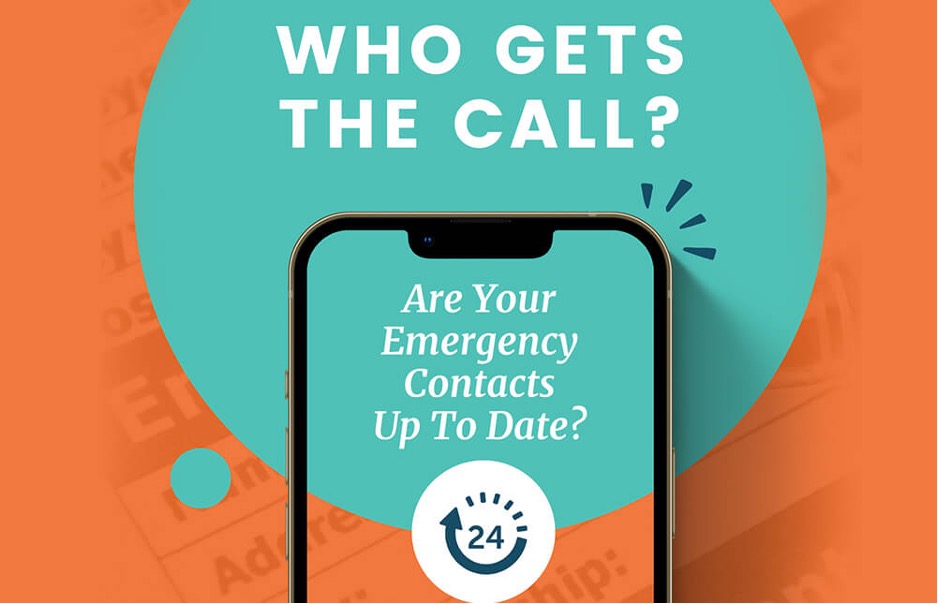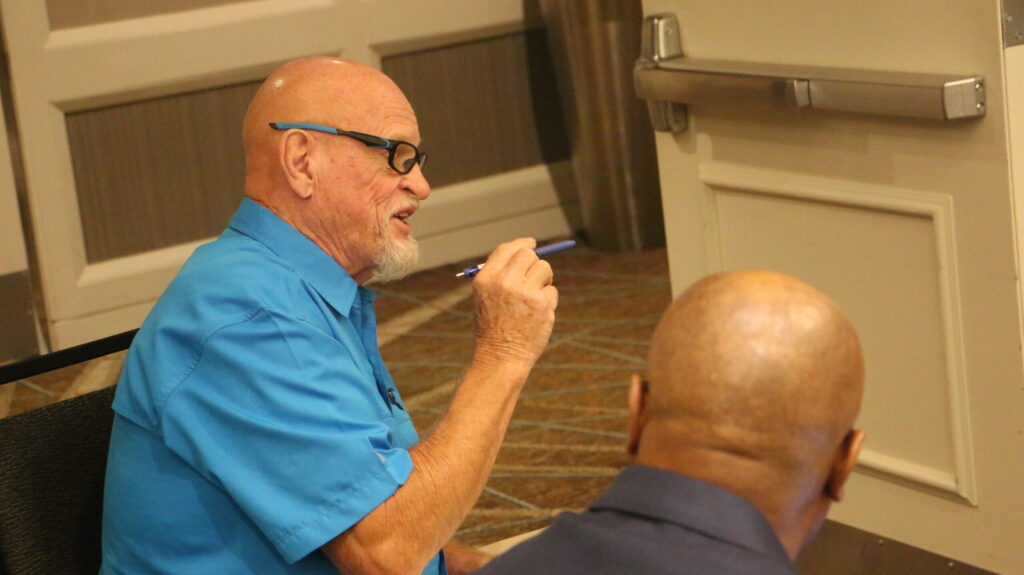Who Gets the Call? Are Your Emergency Contacts Up To Date?

Nobody wants to think about a medical emergency happening to them. But everyone needs to recognize the importance of being prepared.
No matter your age or how healthy you are, emergency contacts are one of the most important ways to be ready in case of a medical emergency. After all, unforeseen events like car accidents, severe weather events, or natural disasters can happen to anyone, anytime. An emergency contact is more than a formality when filling out enrollment forms or completing paperwork at a doctor’s office. Immediate health issues might necessitate quick communication with family or specific healthcare professionals in times of need.
How to Choose Your Emergency Contact:
Having reliable emergency contacts can act as a safety net. Your emergency contact list should be people who:
- Are close to you, you trust, and know your needs and wants.
- Can talk knowledgeably to medical professionals about your medical history, current medications allergies, and chronic conditions.
- Can make critical, life-saving medical decisions.
- Is willing and mentally fit to take on the responsibility.
- Also has the legal right to act on your behalf.
- Can provide emotional support and comfort in times of distress.
How to Ensure a Reliable Emergency Contact
- Regularly Update Information: Contacts might change over time. Whether it is a change in phone number or someone else becoming the primary point of contact, be sure to keep the information up to date.
- Multiple Contacts: Having more than one emergency contact is always a good idea. This increases the chances of reaching someone quickly during urgent situations.
- Clarify Roles: Clearly outline what each emergency contact is responsible for. For instance, one might be the primary contact for medical decisions, while another could be for logistical or day-to-day concerns.
The importance of emergency contacts cannot be overstated. These contacts serve as a bridge, ensuring you are always connected to loved ones and receive the care and support you need, no matter the situation. By maintaining updated and reliable emergency contacts, you can ensure the well-being and peace of mind. Likewise, being prepared for the cost of emergency medical transportation also can’t be overstated. A ground ambulance or air transport could cost thousands of dollars. Medicare may not cover this. Medical Air Services Association (MASA) provides the MASA Emergency Shield Plan for lifesaving emergency transportation services. Services are paid in full, with no deductibles, co-pays, or dollar limits. Whether you’re home or traveling, MASA Emergency Shield covers your ambulance or airlift, regardless of your age or medical condition. Plus, you can get your plan through a trusted source: NCRGEA and AMBA. Get your plan now at www.AMBAmedtransport.com/NCRGEA or call 800-956-1228.



